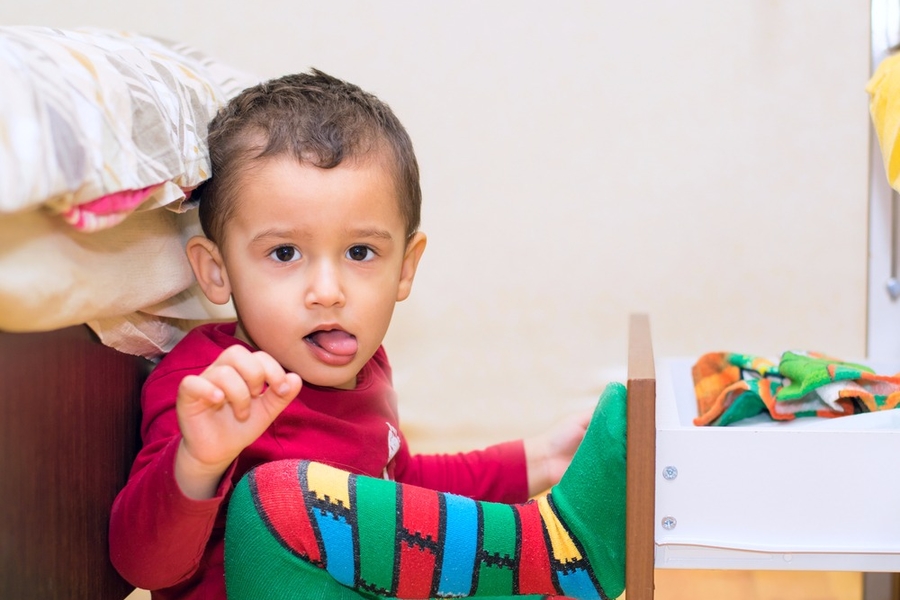
A comprehensive guide on Autism straight from the Expert’s desk
29 Apr 2016 | 5 min Read
Dr. Puja Grover Kapoor
Author | 3 Articles
It’d help a great deal if parents could discover or read signs of Autism, if any, in their child early. To understand what they should know about, the red flags and the first steps they must take, we spoke to a leading pediatric neurologist, Dr Puja Grover Kapoor.
What is autism spectrum disorder (ASD)?
Autism spectrum disorder (ASD) is a developmental behavioral disability that causes significant social, communication and behavioural challenges. These children communicate, interact, behave, and learn in ways that are different from most other people. The child may have normal intelligence quotient and still have autism. It is characterised by impairment of social interaction, defects in language development and communication skills, stereotype, repetitive, restrictive patterns of behaviours, interest and activities which limits and impairs daily functioning.
Structurally there is no malformation of the brain or neurons.
The number is rising at an alarming high rate with still undefined reasons.
What is the cause for Autism?
Scientists don’t know the exact cause of autism spectrum disorder (ASD), but research suggests that both genes and environment play an important role.
Environmental factors
“Environment” refers to anything outside of the body that can affect health. This includes the air we breathe, the water we drink and bathe in, the food we eat, the medicines we take, and many other things that our bodies may come in contact with. Environment also includes our surroundings in the womb, when our mother’s health directly affects our growth and earliest development. Researchers are studying many environmental factors such as family medical conditions, parental age and other demographic factors, expo¬sure to toxins, and complications during birth or pregnancy
The cause appears to be multifactorial as no study is conclusive of a single cause.
Genetic factors:
In identical twins who share the exact same genetic code, if one has ASD, the other twin also has ASD in nearly 9 out of 10 cases. If one sibling has ASD, the other siblings have 35 times the normal risk of also developing the disorder. Researchers are starting to identify par¬ticular genes that may increase the risk for ASD.
Most people who develop ASD have no reported family history of autism, suggesting that random, rare, and possibly many gene muta¬tions are likely to affect a person’s risk.
What are the early signs?
Autism should be suspected if there is absence of:
- Babbling by 12 months
- Gesturing (e.g., pointing, waving bye-bye) by 12 months
- Single words by 16 months
- Two-word spontaneous (not just repletion of words) phrases by 24 months
- Loss of any language or social skills at any age
When should we suspect Autism in a child?
- Doesn’t point at objects to show interest (for example, not point at an airplane flying over)
- Doesn’t look at objects when another person points at them
- Has trouble relating to others or not have an interest in other people at all
- Avoids eye contact and want to be alone
- Has trouble understanding other people’s feelings or talking about their own feelings
- Appears to be unaware when people talk to them, but respond to other sounds
- Is very interested in people, but doesn’t know how to talk, play, or relate to them
- Repeats or echoes words or phrases said to them, or repeats words or phrases in place of normal language
- Has trouble expressing their needs using typical words or motions
- Doesn’t play “pretend” games (for example, not pretend to “feed” a doll)
- Repeats actions over and over again
- Has trouble adapting when a routine changes
- Has unusual reactions to the way things smell, taste, look, feel, or sound
What are the different kinds of experts who the parents should meet?
- The child should meet pediatric neurologist for exclusion of secondary causes leading to autism such as tuberous sclerosis, exclusion of seizures, among others.
- The next visit should be to the development paediatrician or child psychologist for the confirmation of the diagnosis.
- They apply certain questionnaire-based tests which helps in the diagnosis of the disorder.
- After the diagnosis is confirmed, the child requires therapies from occupational therapist, speech therapist and an applied behaviour analyst therapist.
Do’s and don’ts with autistic children
- Autism is generally associated with hyperactivity so these children should not be given high sugar-based foods as they increase the hyperactivity.
- They require a lot of physical exercises to control their hyperactivity.
- It has been proven scientifically that alternative therapies like Yoga, music therapy, swimming by a professional trained for special children, can make a difference in the child’s behaviour.
- The results of a gluten-free casein-free diet (GFCF) is controversial and not promising so better be avoided.
- There is no role of stem cell therapy as a treatment option so should not be considered.
Also read more about: Early Signs Of Autism: What Must You Know?, Understanding Behavior in Kids with Autism
Explore the entire collection of articles: Expert Speak, Baby’s Health
If you are reading this article on our website and have an Android phone, please download our APP here for a more personalised experience based on your lifestage.
A


Related Topics for you
Suggestions offered by doctors on BabyChakra are of advisory nature i.e., for educational and informational purposes only. Content posted on, created for, or compiled by BabyChakra is not intended or designed to replace your doctor's independent judgment about any symptom, condition, or the appropriateness or risks of a procedure or treatment for a given person.
